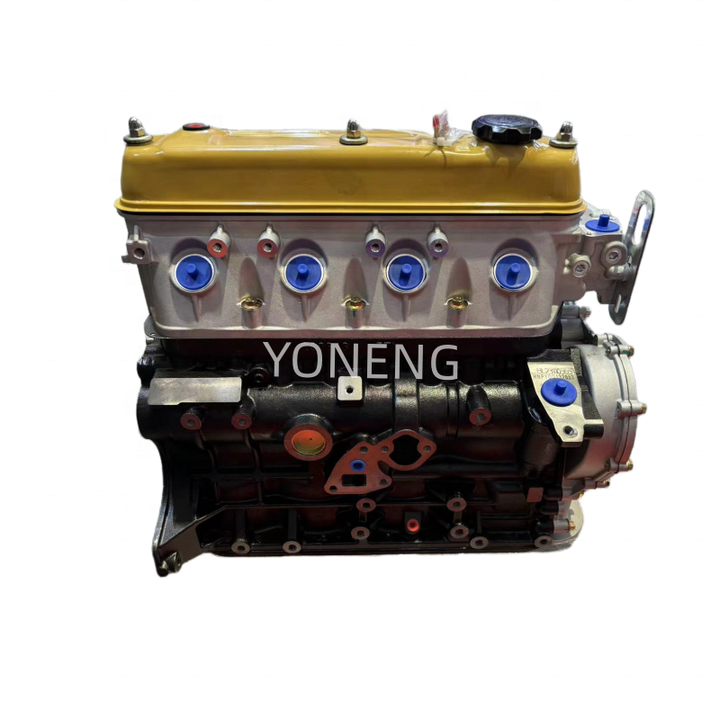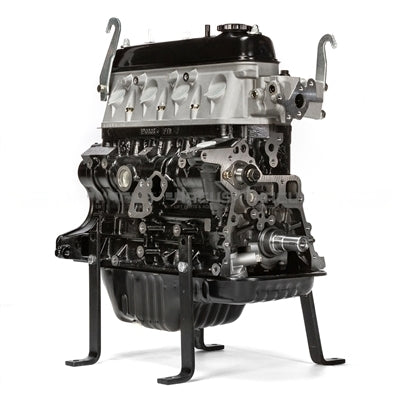The Role of the 4Y Engine in the Automotive Industry’s Evolution
The Role of the 4Y Engine in the Automotive Industry’s Evolution
Blog Article
Checking Out the Numerous Sorts Of Engine: Which One Fits Your Needs?
In the quest to determine the most appropriate engine kind for your certain needs, it is crucial to evaluate the distinct qualities and benefits of each option available. Internal combustion engines continue to dominate due to their reliability, while electrical engines are obtaining grip for their sustainability. Crossbreed engines use a flexible compromise, and diesel engines stand apart for their power in demanding applications. Additionally, alternative gas engines existing ingenious services, albeit with specific limitations. Understanding your top priorities will certainly be critical in this decision-making process, leading to an expedition of variables that might influence your choice.

Interior Combustion Engines
Internal burning engines (ICEs) are the foundation of contemporary transport, powering a huge range of vehicles from autos to planes. These engines operate the concept of converting gas into power with a collection of controlled surges within a combustion chamber. One of the most common sorts of ICEs include fuel engines, diesel engines, and rotating engines, each developed to fulfill particular efficiency and efficiency demands.
Gasoline engines commonly use trigger ignition, while diesel engines depend on compression ignition, causing unique distinctions in fuel effectiveness and power result (4y engine). Rotary engines, or Wankel engines, use a compact style and smooth procedure, but are less generally used in mainstream applications
ICEs have actually undertaken substantial innovations in modern technology, consisting of the intro of turbocharging and gas shot systems, which improve general effectiveness and performance. Despite their efficiency improvements, ICEs face raising scrutiny due to their environmental impact, specifically pertaining to greenhouse gas exhausts.
Electric Engines
As concerns concerning ecological sustainability and nonrenewable fuel source reliance grow, electrical engines have actually become a compelling alternative to inner burning engines. These engines utilize electric motors powered by batteries or gas cells, supplying a cleaner and much more efficient motive powers.
Among the key benefits of electric engines is their lowered discharges. Unlike conventional engines that burn fossil gas, electric engines produce absolutely no tailpipe discharges, considerably decreasing air contamination and contributing to boosted public health and wellness. Additionally, the performance of electric motors often goes beyond that of interior burning engines, converting a greater percentage of energy from the power resource into functional energy for activity.
Electric engines are also remarkable for their peaceful procedure, making them optimal for urban atmospheres. 4y engine. The simpleness of their style causes fewer relocating parts, which can bring about decreased upkeep costs and boosted reliability with time
However, obstacles remain, consisting of battery manufacturing effects, billing infrastructure, and variety limitations. In spite of these difficulties, the growing investment in electrical vehicle innovation and eco-friendly energy sources factors towards a promising future for electric engines, positioned to play an essential function in the change towards sustainable transportation.
Hybrid Engines
Mixing the benefits of both electric and conventional inner combustion engines, hybrid engines represent a flexible option in the pursuit for reliable and lasting transportation. These engines combine a gasoline or diesel engine with an electrical motor, allowing for boosted gas efficiency and reduced emissions compared to traditional automobiles.
Crossbreed engines run in numerous settings, making use of the electrical motor for low-speed driving and the inner burning engine for greater rates or when even more power is needed. This dynamic operation not only enhances fuel economic climate however likewise contributes to a smoother driving experience. Regenerative braking is another vital function, catching energy generally lost throughout stopping and rerouting it to charge the battery.

As consumers increasingly focus on eco-friendliness, hybrid engines stand out as a sensible option, offering a reliable balance of efficiency, effectiveness, and environmental duty. This adaptability makes them ideal for metropolitan travelling and long-distance travel alike.
Diesel Motor
Effectiveness and power are hallmarks of diesel engines, which have actually long been favored for their effectiveness and fuel economic situation. These engines operate the concept of compression ignition, where air is compressed to a high temperature level before gas is injected, you can find out more sparking it without the demand for stimulate plugs. This procedure allows diesel motor to achieve greater thermal performance compared to fuel engines, translating right into far better fuel gas mileage and reduced carbon dioxide discharges.
Diesel motor are especially fit for sturdy applications such as vehicles, buses, and commercial machinery, where torque and durability are critical. Their layout generally consists of more powerful parts to withstand the higher pressures produced during operation, leading to longer life span and lowered maintenance expenses.

Alternative Fuel Engines
While diesel motor have long dominated the landscape of sturdy source of power, alternate fuel engines are gaining grip as feasible choices for a more lasting future. These engines use a variety of gas, such as compressed natural gas (CNG), lp, hydrogen, and ethanol, intending to decrease greenhouse gas emissions and dependence on nonrenewable fuel sources.
One significant benefit of alternative gas engines is their prospective to reduced carbon impacts. For instance, CNG engines send out less pollutants contrasted to conventional diesel motor, making them appropriate for city transit systems and fleets looking for to improve air top quality. Ethanol, stemmed from biomass, not only minimizes emissions however also supports farming economies.
Hydrogen gas cells represent an innovative growth in this realm, using zero-emission power via a chemical reaction in between hydrogen and oxygen. Nonetheless, challenges such as facilities growth and production expenses continue to be obstacles to widespread fostering - 4y engine.
Verdict
To conclude, choosing the appropriate engine kind requires cautious factor to consider of specific needs and preferences. Interior combustion engines use integrity, while electrical engines prioritize sustainability and reduced maintenance. Hybrid engines combine the advantages of both, improving effectiveness, whereas diesel motor supply premium power and torque for sturdy applications. Alternative fuel engines present environmentally friendly choices, albeit with prospective facilities difficulties. Eventually, an extensive evaluation of driving practices and environmental values will facilitate an informed choice pertaining to engine option.
Hybrid engines supply a functional concession, and diesel engines stand out for their power in demanding applications. The most common kinds of ICEs include gasoline engines, diesel engines, and rotating engines, each created to satisfy particular efficiency and more tips here performance requirements.
Unlike conventional engines that melt fossil gas, electric engines generate no tailpipe emissions, significantly decreasing air contamination and contributing to boosted public health and wellness.Hybrid engines run in several settings, using the electric motor for low-speed driving and the interior combustion engine for greater speeds or when even more power is needed. Crossbreed engines integrate the benefits of both, improving performance, whereas diesel engines supply superior power and torque for sturdy applications.
Report this page